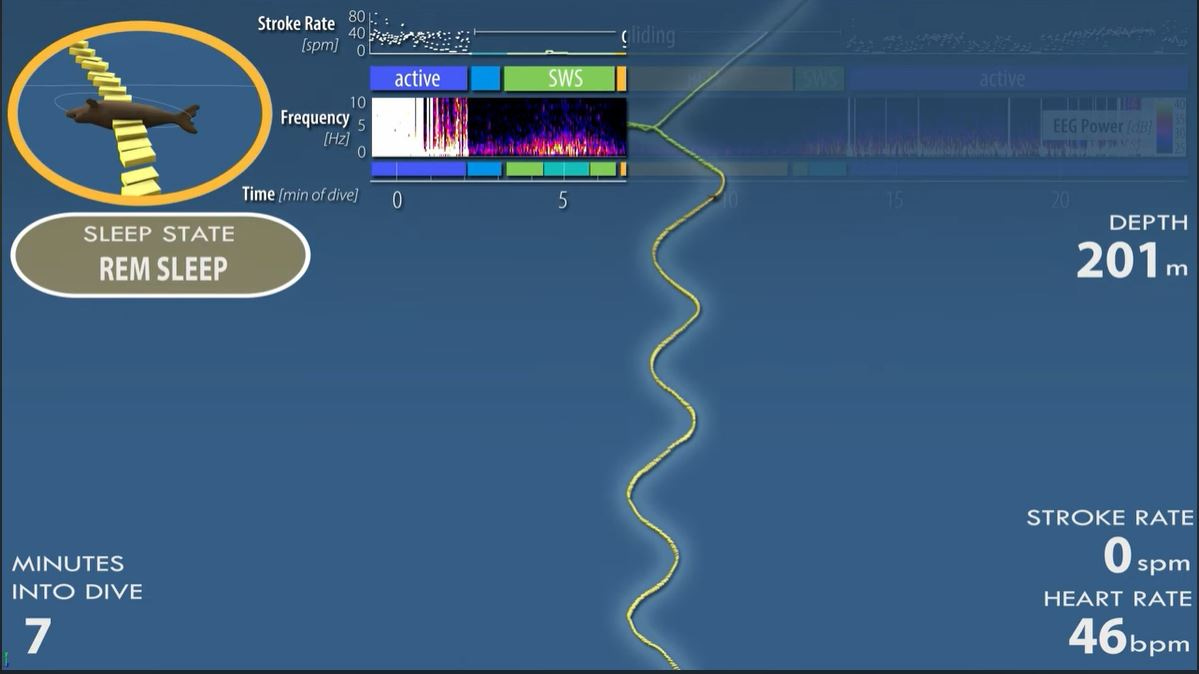The Amazing Sleeping Habits of Elephant Seals
Elephant Seals Throughout the extended periods they spend in the ocean, consuming significant quantities of fish and squid, the colossal elephant seals rest for merely two hours per day.
For a long time, African elephants were thought to be the reigning champions of getting by on minimal sleep, with a mere two hours being enough for them to function. Other animals, like koalas or humans, need much more sleep to function properly.
However, a recent study published in the journal Science has found that Northern elephant seals, which are the largest mammals on land, also require only about two hours of sleep to survive. This is particularly remarkable since these seals sleep far less at sea than they do on land, and they take these brief naps hundreds of feet below the ocean’s surface to avoid being attacked by predators.
Northern elephant seals can descend to depths of 2,500 feet and stay under for approximately two hours. Although not as large as African elephants, males can weigh as much as a car and stretch up to 13 feet long. To maintain their blubbery bulk, these seals must spend around seven months each year at sea feeding on fish and squid.
During their extended periods at sea, Northern elephant seals face threats from predators like great white sharks and killer whales. Unlike some marine mammals, which can rest half of their brain at a time to remain alert to threats, elephant seals shut down their brains entirely during sleep.
Overall, the study sheds light on the impressive abilities of these champion divers to survive with minimal sleep, even in the harsh conditions of the deep ocean.
As a postdoctoral fellow at the Scripps Institution of Oceanography in San Diego, Jessica Kendall-Bar pondered how Northern elephant seals could get enough sleep during their extended time in the ocean, where they must eat and avoid predators. To investigate this, she and her colleagues at the University of California, Santa Cruz, designed a noninvasive device that could track the seals’ heart rate, brain waves, dive depth, and movement.
Youtube Video: The Art of Power Napping: Elephant Seals’ Sleep Patterns During Deep Ocean Dives
The team fitted the devices onto the seals’ heads and monitored their sleep for five days. The collected data revealed a unique sleeping routine: the seals would dive down, stop swimming, and then start to glide while their brain activity slows. They would then transition to REM sleep and flip upside down, spinning in circles and falling like leaves, remaining oblivious to their slow descent. After around 10 minutes, they would abruptly wake up and return to the surface.
The seals would perform several sleep dives each day, which gave them around two hours of sleep. In contrast, when they haul out on land to breed and molt, they sleep for over 10 hours a day. According to Jerome Siegel, a professor of psychiatry at the University of California, Los Angeles, and a sleep evolution and function researcher, it is reasonable that Northern elephant seals would limit their sleep while at sea to make the most of their food intake and minimize their vulnerability to predators. Dr. Kendall-Bar hopes that her team’s findings will help in the conservation of marine mammals.
Your Comments is a motivation for us!
Have a Great Day!
Cheers!

